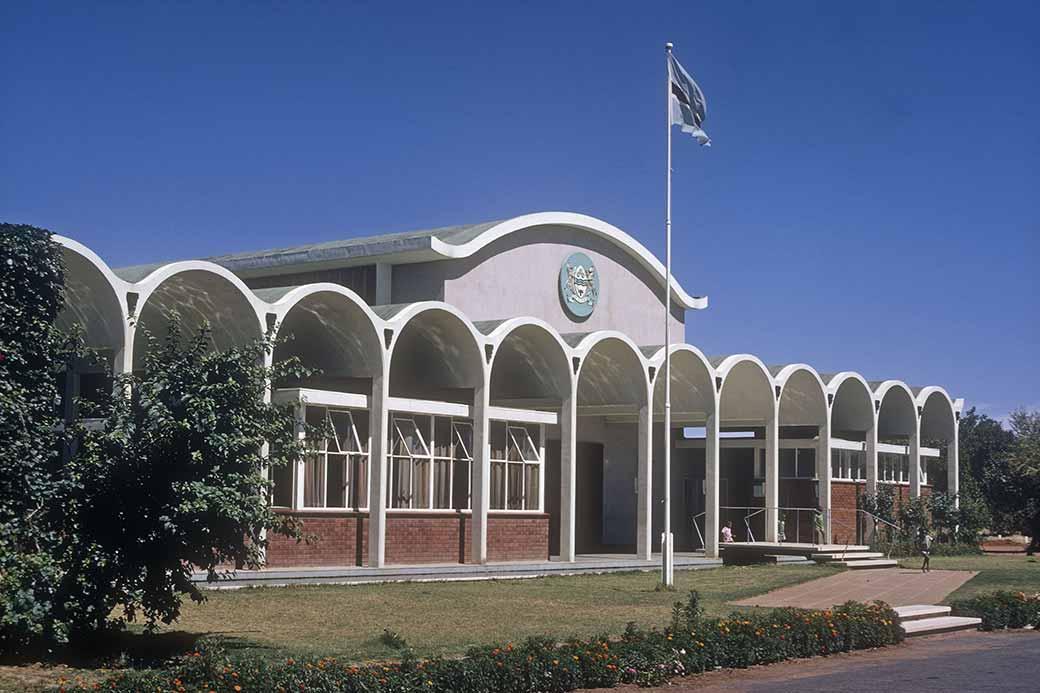Africa-Press – Botswana. Sport has the potential to drive economic growth as a key pillar of economic transformation, which makes investment in clean sport a necessary component of Botswana’s broader development agenda.
Presenting the Anti-Doping Bill, 2025 in Parliament for second reading under a certificate of urgency, the Minister of Sport and Arts, Mr Jacob Kelebeng said Botswana acceded to the United Nations Educational Scientific and Cultural Organisation International Convention Against Doping in Sport on August 6, 2009.
This, he said, was in recognition of the importance of clean sport and the need to protect the fundamental rights of the athletes to participate in the doping free sport.
In doing so, he said the country committed to taking legislative, regulatory and administrative measures to give full effect to the World Anti-Doping Code (WADC).
“This include the development of national laws to prohibit the use of performance enhancing substances and the establishment of appropriate institutional frameworks to enhance such laws,” he said.
WADC, he said, required a clear separation between implementing agencies and regulatory oversight authorities to ensure independence, fairness and accountability in the anti-doping matters.
Minister Kelebeng cautioned that the current setup where the anti-doping provisions were housed within the Botswana National Sport Commission (BNSC) Act of 2014, whilst BNSC was an implementing agency, undermined the principle.
Therefore, Mr Kelebeng said the proposed legislation was not just a compliance issue, but an urgent matter of national integrity, public health and international credibility.
He said it was essential that the Bill was passed for the establishment of properly resourced anti-doping framework, in line with international best practices, as this would significantly protect and enhance the future, credibility and integrity of the country’s sport.
The minister said approval of the request for the amendment of the BNSC Act, 2014 would migrate the provisions from the BNSC Act, 2014 into the stand-alone Anti-Doping Bill, thus avoid overlaps or duplication.
Additionally, he noted that the Anti-Doping Bill would allow for the establishment of a legally recognised, dedicated and independent national anti-doping organisation, to serve as the primary authority on the anti-doping matters in the country.
This, he said, would also improve the effectiveness and credibility of the National Anti-Doping Programme by aligning governance structures with global standards and international best practices.
Though the Bill had not yet matured, as it was published on the Government Gazette of July 23, he said it was of significance and came at a critical time for the country’s sport.
“We have witnessed a worrying rise in doping cases in recent years, which undermines the integrity of our sporting achievements, puts our athletes’ health at risk and threatens the country’s reputation and standing in the international sporting community,” he added.
For that reason, as Botswana prepares to host and participate in the major upcoming international events, such as the 2026 World Athletics Relays, the minister stressed that it was essential for Botswana to position itself as a country that valued fairness, equality and athletes’ welfare.
More importantly, the minister said the government continued to make significant investments in the area of high performance sport to enable the talented young Batswana to benefit from the multi-billion Pula global sport industry.
“Young Batswana can only have long and fruitful career in high performance sport if they are clean. Therefore, the need for us to demonstrate our commitment to clean sport has never been more urgent,” he added.
For More News And Analysis About Botswana Follow Africa-Press






